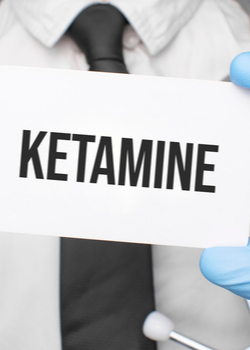The Dangers of Mixing Ketamine and Alcohol

Bleach and ammonia. Oil and water. Milk and Red Bull. Some things just don’t mix well.
Topping the list of “things you should never, ever mix” are ketamine and alcohol.
This duo isn’t just a poor pairing — like popcorn and ketchup. It causes far more than a bad aftertaste or stomach issues. When ketamine and alcohol mix, this combo can kill you.
That’s what happened to a law student in Cardiff, Wales.
Lethal Cocktail Kills College Student
 Meghan shared two Snapchat videos on November 16, 2020. They showed Meghan and her two roommates preparing lines of ketamine.
Meghan shared two Snapchat videos on November 16, 2020. They showed Meghan and her two roommates preparing lines of ketamine.
Later that day, Meghan’s life ended.
Partying with her friends, Meghan took the ketamine, and she drank enough alcohol to put herself at twice the driving limit.
With this deadly combination in her body, it’s really no surprise what happened next. Meghan started to feel ill, then she went into cardiac arrest. When her heart stopped, her brain stopped getting oxygen. There was nothing medical professionals could do. By the end of that day, Meghan, age 18, was pronounced brain dead, and her life support was turned off.
Why Is Mixing Ketamine and Alcohol So Deadly?
Maybe she didn’t realize it, but Meghan was taking a huge risk when she mixed ketamine and alcohol. Ketamine on its own is risky, but when it’s combined with alcohol, the dangers skyrocket.
Why? Ketamine is a sedative and a dissociative anesthetic. (It slows down your brain activity, and it makes you feel detached from your surroundings). And alcohol is a depressant. (It slows down the activity of your organs). Together, these drugs wreak so much havoc on your body’s systems that you might not survive their effects. Here’s what happens:
In your brain: Both of these drugs affect your ability to think. When you take them together, you may not be able to communicate or move normally. And you probably won’t be able to process exactly how the drug is affecting you, so you may overdose. (And since you can’t communicate, you can’t ask for help.)
In your lungs: Mixing ketamine and alcohol causes your breathing to slow down — to dangerously slow levels. If you take too much, you could stop breathing altogether. And even if you keep breathing, the slow breaths can make you feel tired and confused or pass out. If your breathing continues at this slow rate for too long, you could slip into a coma or die.
In your bladder: Ketamine is harsh on the bladder. It can cause permanent damage to the urinary tract. In fact, bladder problems from ketamine are so common that the term “ketamine bladder syndrome” is now used.
Research has shown that combining this drug with alcohol use makes these bladder issues even more likely. Possible effects include incontinence, painful urination, blood in urine, and lower abdominal pain.
In your heart: Alone, ketamine is dangerous to your heart’s rhythm. When it’s combined with alcohol, the risk of damage to your heart goes up. Possible effects include palpitations, high blood pressure, rapid heart rate, and chest pain. If you take enough, the drug combo can cause a stroke or heart attack (as in Meghan’s case).
Warning Signs
With such drastic effects, it’s easy to see how this combination can be deadly. If you or someone you know has mixed ketamine and alcohol, watch for the following symptoms. If you notice any of these effects, don’t hesitate to call 911.
- Confusion
- Drowsiness
- Hallucinations
- Trouble breathing
- Loss of coordination
- Vomiting
- Abdominal pain
- Irregular heartbeat
- Seizures
- Clammy skin
- Collapse
And if you survive mixing ketamine and alcohol…
If Meghan had survived that night, would she have used ketamine again? We’ll never know. But we do know that if she had continued using the drug, she would have faced additional risks. Beyond the immediate dangers of mixing ketamine and alcohol, the long-term use of ketamine also comes with the risk of:
- Anxiety and depression
- Memory problems
- Trouble focusing
- Bladder and kidney damage
- Physical and psychological dependence
What now?
 Remember…the dangers of mixing ketamine and alcohol — even in small amounts — can be deadly. The risk of overdose is extremely high. And the persistent use of either substance can lead to addiction.
Remember…the dangers of mixing ketamine and alcohol — even in small amounts — can be deadly. The risk of overdose is extremely high. And the persistent use of either substance can lead to addiction.
If you or someone you love is experiencing a substance use disorder, help is available. Call 800-996-6135 today.
Photos courtesy of Shutterstock.

